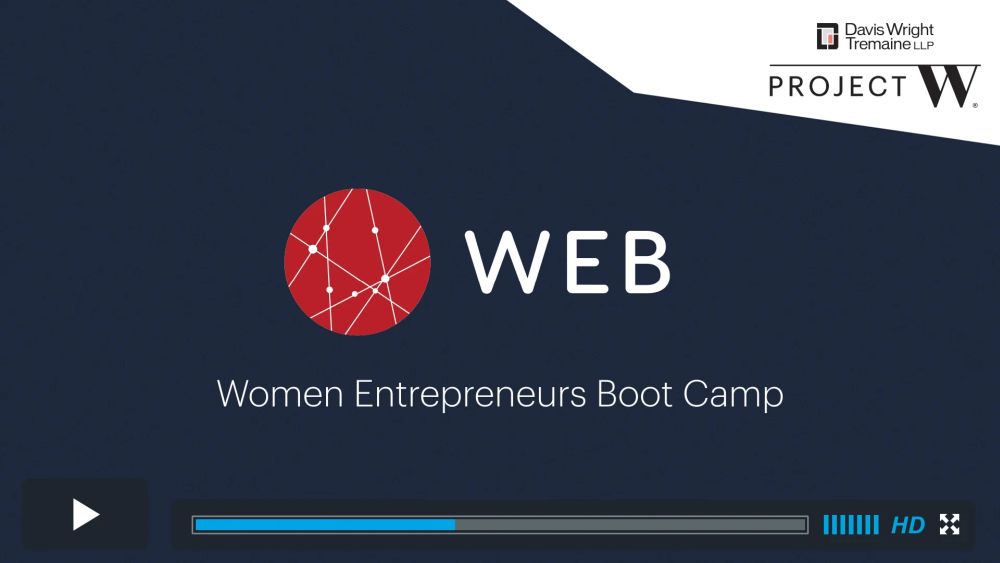Tech
United States – Healthcare – Project W: Takeways From WEB

On June 13, in Culver City, twelve founders and over two dozen investors and experts convened for Project W’s Women Entrepreneurs Boot Camp | Health Tech to drive innovation…
United States
Food, Drugs, Healthcare, Life Sciences
To print this article, all you need is to be registered or login on Mondaq.com.
On June 13, in Culver City, twelve founders and over two dozen
investors and experts convened for Project W’s Women
Entrepreneurs Boot Camp | Health Tech to drive innovation that
is transforming the delivery of healthcare and improving patient
outcomes.

Hailing from nine cities across the country, the founders of WEB
| Health Tech are building innovative medical devices, software
solutions for the industry, and digital platforms to deliver care
to patients. Throughout the day, healthcare experts and investors
shared their insights and guidance with the founders to accelerate
their paths to success.
Our takeaways from the many discussions and interactions
throughout the day? Here are five areas where the healthcare sector
is ripe for disruption and where the women of WEB | Health Tech are
leading the way.
Healthcare systems are still using processes that
are antiquated, impeding the delivery and effectiveness of
care.
- WEB | Health Tech companies have developed software solutions
to automate tasks, increase productivity, and decrease operating
costs. - Kinometrix replaces manual risk assessments by
leveraging machine learning and electronic health record data to
provide accurate, real-time risk assessments. - Titan
Intake helps practices and health systems reduce referral
leakage and improve surgical yield through referral workflow
automation, communication, and data. - Rivia
Health makes the medical bill payment process frictionless and
efficient for both patient and provider.
Providers continue to deal with post-pandemic staff
burnout and the challenge of recruiting trained
workers.
- Moneta
is harnessing the power of generative AI to replicate human staff
interaction with older adults with mild cognitive impairment and
early dementia with an on-demand AI voice assistant.
Certain populations and their unique health issues
and characteristics continue to be underserved.
- Women face unique health issues, and Swehl and Aavia are addressing
them. Swehl’s platform offers a modern toolkit to transform the
way parents experience breastfeeding. Aavia enables women to track
and understand how their ovarian hormones impact their daily
lives. - Patients with darker skin tones may respond differently to
therapies and Opticyte and Rubitection have developed devices that
eliminate bias due to skin tone when detecting, assessing, or
monitoring conditions. - Yumlish
addresses a critical gap in the healthcare industry by providing
accessible, culturally relevant nutrition education to underserved
populations.
Existing healthcare delivery systems have limited
capacity to deliver specialized treatments to large patient
populations that need them.
- Nivati is
solving the problem of access to mental health care by providing
four layers of care – self-guided, group, 1:1, and crisis
care. - NOCTEM
Health uses digital technologies and advanced machine learning
to upskill non-specialists so they can offer sleep therapy to their
patients.
The pace of R&D lags behind demand for new
therapies and ways to diagnose conditions.
- Synthesize Bio uses cutting edge AI technology
to accelerate R&D for life sciences and pharmaceutical
companies by reducing data collection and analysis from months to
minutes for a fraction of the cost in time, personnel, and
materials.
Keep an eye on these companies and the founders who are building
them. They are making healthcare more accessible, more equitable,
and more effective.
The content of this article is intended to provide a general
guide to the subject matter. Specialist advice should be sought
about your specific circumstances.











